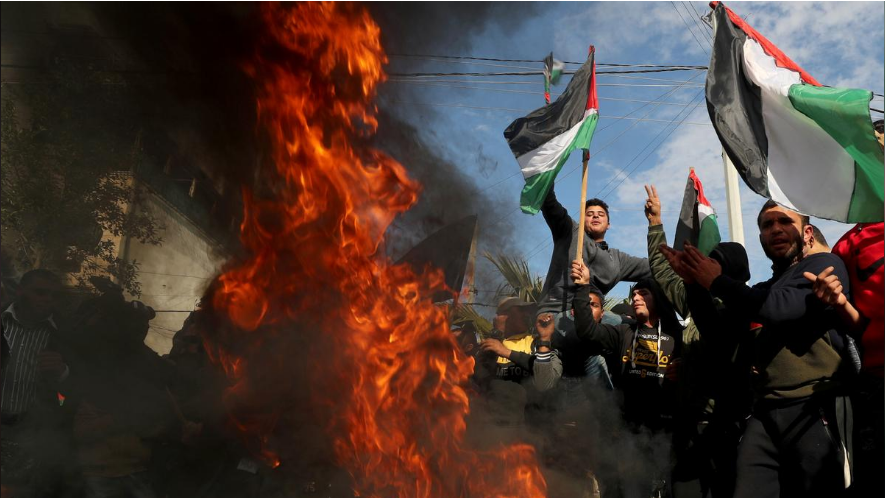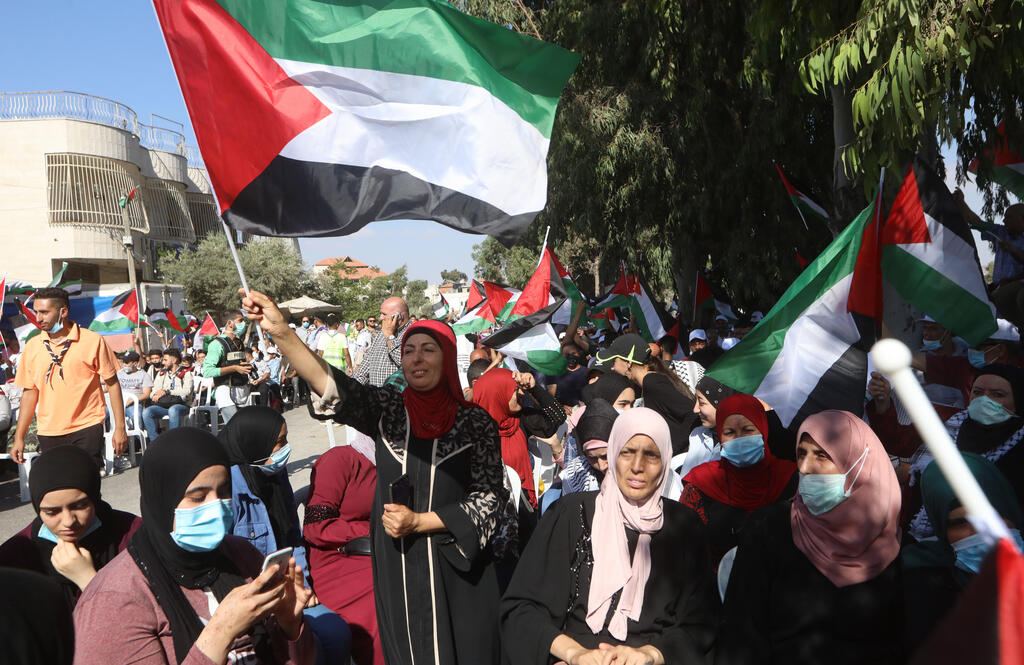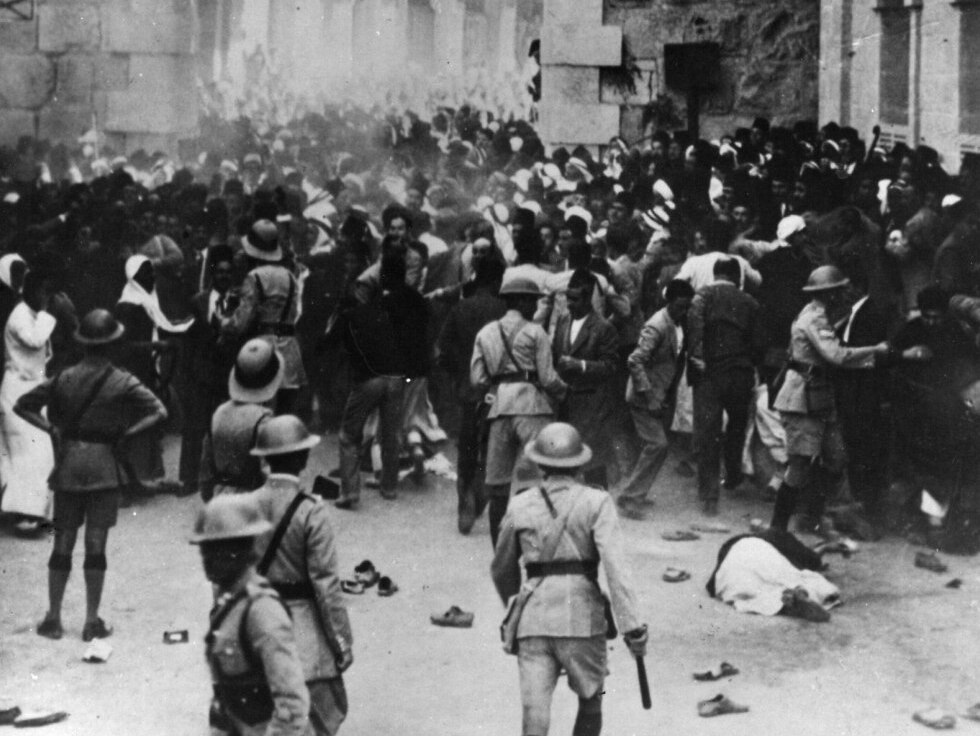The end of this year will mark 100 years since the start of the Arab riots in Jerusalem and Jaffa.
Five Jews and four Arabs were killed and hundreds more were injured in the Jerusalem riots, which began with Arab protests against Zionism and the occupying British forces.
4 View gallery


Palestinians in Gaza City protest as tires burn ahead of the announcement by U.S. President Donald Trump of his Mideast peace plan
(Photo: Reuters)
The Jaffa riots began with a clash between members of the Jewish Communist Party and the Ahdut HaAvoda (Labor Unity) Party in the city, which then devolved into a full-blown lynching of local Jewish residents by their Arab neighbors.
The riots quickly spread across the entire country, and resulted in hundreds of both Arab and Jewish dead - mainly at the hands of British forces - and hundreds of wounded on both sides.
While there had previously been friction between Jews and Arabs in pre-state Palestine, the events of 1920-1921 were different.
The clashes were promoted by Arabs who lived in separate from the rest of the country's residents and whose unique militaristic identity was nurtured by their constant fighting with both the Jews and the British forces stationed in Palestine-Israel.
Many consider these two history-defining events as the birth of the modern Palestinian national movement.
It is safe to say that there are not be many Palestinians who would sum up the last century in a positive way, and the last few years have only exacerbated the national sense of depression.
Along with the dissipation of their vision of an independent state, the internal divisions among Palestinians have grown while regional and international interest in their issue declined.
Furthermore, the narratives that once supported their cause of independence have been thoroughly shaken, chiefly their demand that normalization between Israel and the Arab world only comes after Israel reaches an agreement with the Palestinians.
The situation is not solely the fault of the Palestinians. Israel has also played its part in creating the current complicated reality, whether through long-standing disregard of the Palestinian issue or by taking positions that have created a stalemate.
The bleak reality in which the Palestinians exist forces them to re-examine the path ahead for their national movement.
The past century was marred with recurring patterns that prevented the Palestinians from achieving their goals, including political rigidity and the inability of or unwillingness by their national leadership to take decisions that would benefit all Palestinians.
4 View gallery


Palestinians protest against the establishment diplomatic ties between Israel and the United Arab Emirates
(Photo: EPA)
One hundred years after its birth, the Palestinian national movement is one of the most stable in the Arab world. It is the loss of their homeland and their desire for sovereignty that has made the movement one of the most consolidated groups in the Middle East.
And yet, for all its consolidation, the movement prides itself not on actual changes that would benefit the Palestinian people, but on steadfastness and resilience in the face of the many disasters thrown at it.
The Palestinian history can be summarized as a sting of glorious missed opportunities.
From their rejection of the UN Partition Plan in 1947 that would have seen the division of the land into two countries, one each for Palestinians and Jews, to bitter confrontations with their Arab brethren, fierce internal struggles, poor choices of regional allies and the rejection of initiatives that could have addressed the Palestinian demand for sovereignty.
4 View gallery


Palestinians protesting against Bahrain's normalization agreement with Israel
(Photo: AFP)
Israel's recent agreements with the UAE and Bahrain present the Palestinians with a dilemma.
Should they remain as they were, thrown together by empty slogans and the need for historic justice or should they evolve and understand some painful concessions must be made in order for them to achieve their dream of an independent country?
The Palestinians are currently in a strategic slump, Israel cannot be contend with the current situation. On the contrary. The last century has shown us that the two national groups are intertwined. When one hurdles towards chaos, the other will be dragged along with it.
Both Israelis and the Palestinians are currently marching towards a one state solution that would see them living in one country - a solution is nothing but volatile.
Both sides must decide whether they are willing to step into such a future, before separation becomes all but impossible.
Michael Milstein is the head of the Palestinian Studies Forum At the Moshe Dayan Center at Tel Aviv University


